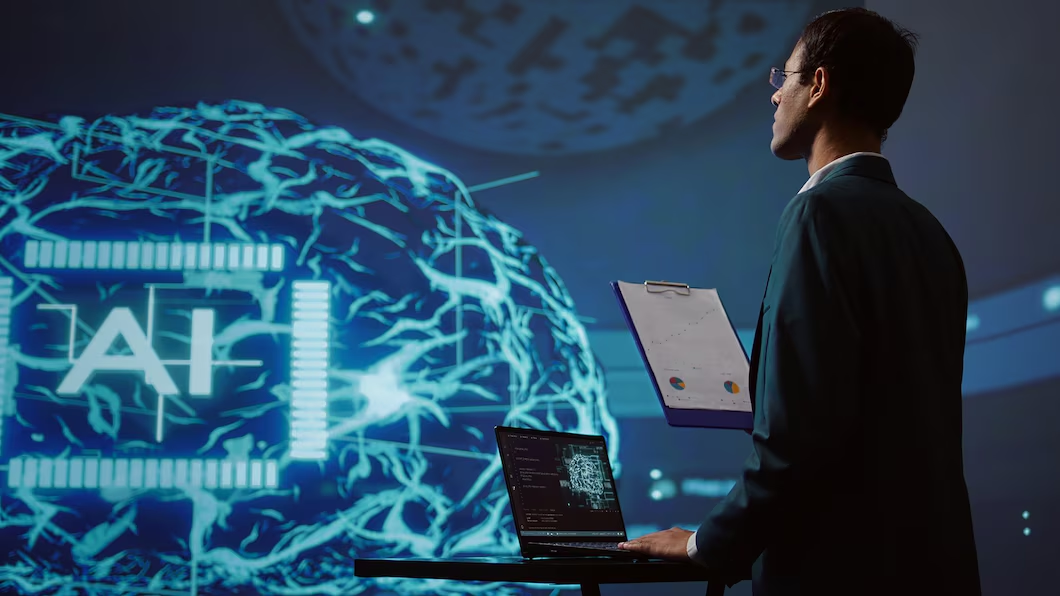
Introduction
Artificial intelligence (AI) is driving transformative changes in healthcare, and one area experiencing significant advancements is medical education. AI-enabled Point-of-Care Ultrasound (POCUS) is revolutionizing the way medical students learn diagnostic skills, providing educators and administrators with new tools to enhance training and prepare students for clinical practice. ET, titled “How AI-Enabled Handheld Ultrasound is Changing Education for Medical Students.” This event will gather industry experts to discuss the future of POCUS in medical education and its potential to reshape the training and clinical landscape.
Overview of AI-Enabled POCUS
What is Point-of-Care Ultrasound ?
Point-of-Care Ultrasound is a diagnostic tool that allows healthcare providers to use ultrasound technology at the bedside. Traditionally performed in a radiology department, it brings imaging directly to the patient, facilitating immediate assessment and diagnosis. This accessibility has made POCUS increasingly valuable in clinical settings and is now finding its place within medical education.
Role of AI in Enhancing POCUS
AI enhances POCUS by automating complex tasks and providing real-time guidance to users. In medical education, AI-enabled POCUS systems can label anatomical structures, guide users through procedures, and assist in identifying abnormalities. These capabilities make Point-of-Care Ultrasound a powerful tool for educators, enabling students to learn faster and with more confidence. By integrating AI with handheld ultrasound devices, POCUS offers a more interactive, accurate, and accessible training experience.
How AI-Enabled POCUS is Transforming Medical Education
The upcoming webinar will feature a panel of experts discussing the multi-dimensional impact of AI-enabled it on medical education. This section highlights the primary areas where AI-enhanced it is transforming the training of future healthcare providers.
Solving Staffing Shortages in Medical Programs
One of the challenges facing medical education today is staffing shortages. Under-resourced programs struggle to provide enough hands-on training opportunities, which can impact the quality of education. AI-enabled Point-of-Care Ultrasound provides a scalable solution by allowing students to practice independently, supported by AI guidance. This technology can help medical schools address staffing constraints, providing students with consistent and accurate feedback without needing constant instructor supervision. As AI enhances the POCUS training process, educators can reach more students and provide valuable, hands-on experience even with limited teaching resources.
Accelerating Learning for Medical Students
AI-enabled Point-of-Care Ultrasound accelerates learning by providing students with instant feedback and assistance. For example, AI algorithms can highlight anatomical landmarks and structures, helping students understand what they are viewing on the ultrasound screen. These visual aids allow learners to make connections between theoretical knowledge and practical skills more quickly, improving their understanding of anatomy and diagnostic techniques.
With AI-guided POCUS, students can practice more autonomously, learning from their interactions with the device and building confidence in their diagnostic abilities. This shift in learning dynamics means students may enter clinical practice with stronger foundational skills, reducing the learning curve once they begin treating patients directly.
Impact on Future Clinical Practice
Training medical students with AI-enabled Point-of-Care Ultrasound prepares them for a future in healthcare where technology plays an integral role in diagnosis and patient care. As students gain familiarity with Point-of-Care Ultrasound and AI technology, they develop skills that will shape their future clinical practice. The ability to use it confidently allows future providers to perform quicker assessments, leading to faster decision-making and potentially improved patient outcomes.
This training will also help cultivate a generation of healthcare providers who are adept at using AI-integrated tools, aligning with the industry’s shift towards precision medicine and technology-enhanced diagnostics.
Conclusion
AI-enabled Point-of-Care Ultrasound is set to transform medical education, offering a scalable solution to current challenges like staffing shortages, accelerated learning, and preparation for future clinical practice. Exo Imaging’s upcoming webinar will bring together industry experts to explore the significant impact of this technology and provide insights into how medical schools can adopt and integrate AI-enhanced POCUS. For educators, students, and administrators, AI-enabled Point-of-Care Ultrasound represents a step forward in creating a more efficient, interactive, and effective medical education environment. By attending the webinar, participants will gain valuable knowledge on how AI-driven POCUS can help shape the future of healthcare training.
Discover the latest Provider news updates with a single click. Follow DistilINFO HospitalIT and stay ahead with updates on medical advancements. Join our community today!
FAQs
1. What is POCUS, and why is it important in medical education?
Ans: POCUS stands for Point-of-Care Ultrasound, a diagnostic tool that allows healthcare providers to conduct ultrasound exams directly at the bedside. In medical education, POCUS provides students with hands-on experience in diagnostic imaging, an essential skill in modern healthcare.
2. How does AI improve POCUS for educational purposes?
Ans: AI enhances Point-of-Care Ultrasound by guiding students in real-time, labeling anatomical structures, and providing immediate feedback. This makes POCUS easier to learn and enables students to develop diagnostic skills faster.
3. What are the main topics covered in the webinar?
Ans: The webinar will cover how AI-enabled POCUS addresses staffing challenges in medical programs, accelerates student learning, and impacts future clinical practice.
4. Who should attend the webinar?
Ans: The webinar is valuable for medical educators, students, administrators, and anyone interested in the role of AI in healthcare education.
5. How can AI-enabled POCUS help address staffing shortages?
Ans: AI-enabled POCUS allows students to practice independently with AI guidance, reducing the need for constant instructor supervision and enabling programs to train more students effectively.




